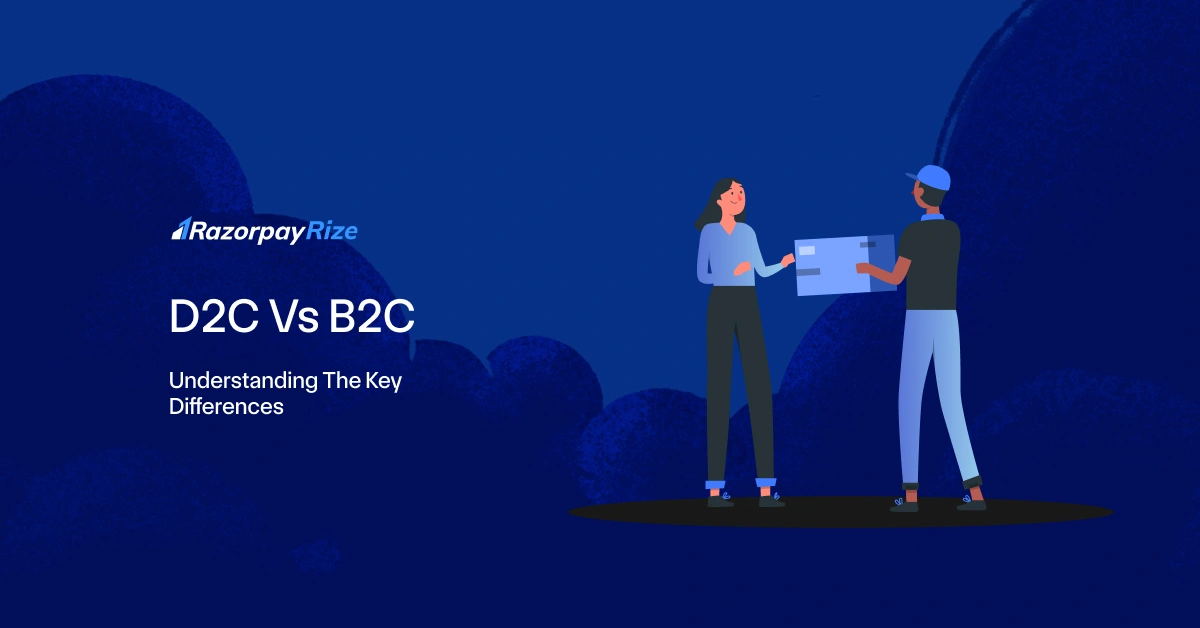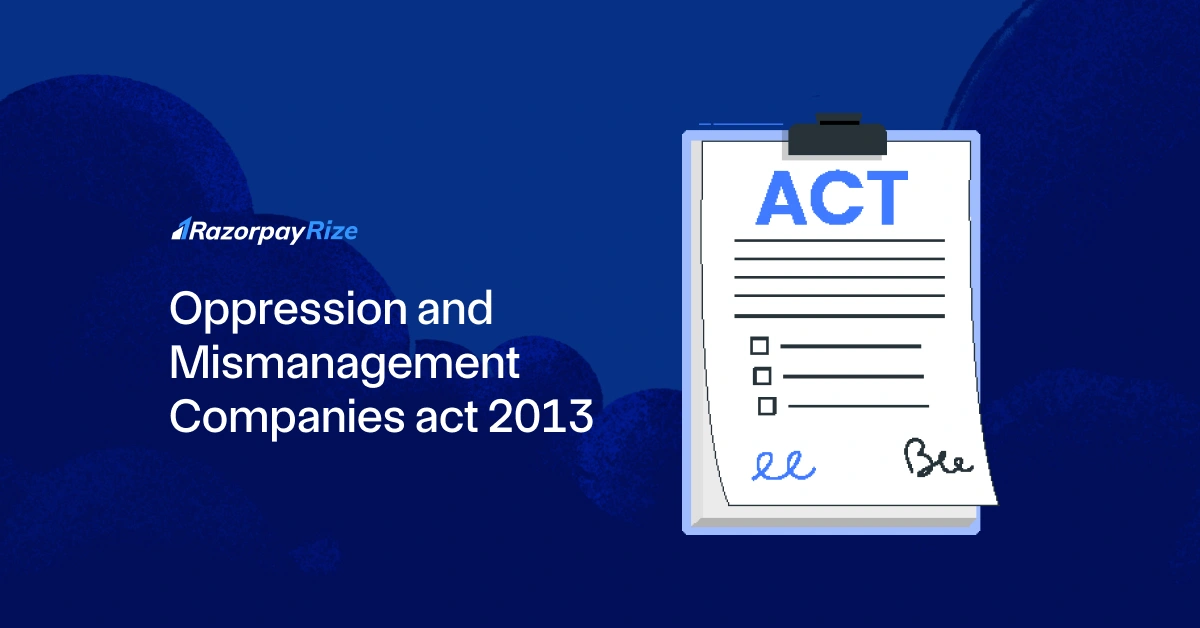In today’s fast-paced market, businesses need the right approach to connect with their customers and stand out from the competition. Two of the most common models, Direct-to-Consumer (D2C) and Business-to-Consumer (B2C) focus on selling to individual customers but operate in distinct ways. While D2C brands sell directly to consumers without intermediaries, B2C typically involves retailers, marketplaces, or third-party distributors.
Choosing the right model impacts everything from marketing strategies and customer relationships to pricing control and scalability. In this blog, we’ll break down the key differences between D2C and B2C, helping businesses understand which model aligns best with their goals and customer expectations.
Table of Contents
Key Differences Between D2C and B2C
Below is a structured comparison of D2C and B2C business models:
Understanding D2C (Direct-to-Consumer)
The Direct-to-Consumer (D2C) model is transforming the way brands connect with customers by eliminating middlemen such as wholesalers, retailers, and marketplaces. Instead of relying on third-party distributors, D2C brands sell directly to their consumers, allowing them to maintain greater control over pricing, branding, customer experience, and marketing.
This model has gained immense popularity due to advancements in e-commerce, digital marketing, and consumer behaviour shifts, where people prefer personalised shopping experiences and direct engagement with brands.
Key Characteristics of D2C
- Direct sales to customers, bypassing intermediaries.
- High reliance on digital marketing and social media.
- Personalised customer experience and strong brand identity.
- Subscription-based or direct-selling models.
How Does D2C Work?
D2C businesses follow a structured approach to take products from concept to consumer while optimising every step for efficiency and customer satisfaction.
- Product Development – Companies design and manufacture their products.
- Branding & Marketing – Strong online presence, leveraging social media and influencers.
- Sales & Distribution – Selling through their websites, pop-up stores, or direct retail.
- Customer Engagement – Providing personalised service and direct interactions.
D2C Example
A great example of a successful D2C brand is Nike. While Nike does sell through retailers, it has aggressively expanded its direct-to-consumer channels through its website, exclusive stores, and apps, allowing for greater control over branding, pricing, and customer experience.
Understanding B2C (Business-to-Consumer)
The Business-to-Consumer (B2C) model is one of the most common and traditional business structures, where companies sell products or services directly to individual customers. B2C businesses can operate through brick-and-mortar stores, e-commerce platforms, third-party marketplaces, and direct retail chains.
This model focuses on high-volume sales, competitive pricing, and broad customer reach. Unlike D2C brands, which manage their own sales channels, B2C companies often partner with retailers and online marketplaces to distribute their products.
Key Characteristics of D2C
- Direct sales to customers, bypassing intermediaries.
- High reliance on digital marketing and social media.
- Personalised customer experience and strong brand identity.
- Subscription-based or direct-selling models.
How Does D2C Work?
D2C businesses follow a structured approach to take products from concept to consumer while optimising every step for efficiency and customer satisfaction.
- Product Development – Companies design and manufacture their products.
- Branding & Marketing – Strong online presence, leveraging social media and influencers.
- Sales & Distribution – Selling through their websites, pop-up stores, or direct retail.
- Customer Engagement – Providing personalised service and direct interactions.
B2C Example
A classic example of a B2C business is Amazon. Amazon provides a vast range of products from multiple sellers, offering convenience and variety to end consumers without directly manufacturing most of the products it sells.
Top 5 Benefits of D2C
- Higher Profit Margins – Eliminates middlemen, allowing businesses to retain higher revenues.
- Direct Customer Insights – Enables data collection for better personalisation and marketing.
- Better Brand Control – Full control over branding, messaging, and customer experience.
- Efficient Inventory Management – Greater flexibility in managing stock and production.
- Stronger Customer Relationships – Builds brand loyalty through direct interactions.
5 Limitations of D2C You Can’t Ignore
- High Customer Acquisition Costs – Digital advertising and influencer marketing can be expensive.
- Intense Competition – Direct sales require brands to stand out in a crowded market.
- Logistics and Fulfillment Challenges – Managing deliveries and returns can be complex.
- Reliance on Digital Marketing – Success depends on strong online marketing strategies.
- Customer Service Demands – Requires robust support teams to handle queries and complaints.
5 Incredible Benefits of B2C
- Larger Customer Base – Mass-market appeal leads to high sales volume.
- Faster Sales Cycles – Quick purchase decisions without prolonged relationship-building.
- Lower Operational Costs – Retailers handle distribution, reducing overhead expenses.
- Multiple Sales Channels – Products available in stores, online, and via third-party platforms.
- Increased Brand Visibility – Established brands enjoy widespread recognition.
5 Major Drawbacks of B2C You Need To Know
- High Competition – Many brands compete for the same audience.
- Lower Customer Loyalty – Customers may switch brands based on price or availability.
- Price Sensitivity – Discounts and competitive pricing play a significant role.
- Increased Marketing Costs – Requires large advertising budgets to stay competitive.
- Logistical Challenges – Managing supply chains across multiple locations can be complex.
Choosing Between D2C and B2C
Selecting the right business model depends on various factors, including brand strategy, market reach, and operational capabilities. Here’s a breakdown to help businesses decide between Direct-to-Consumer (D2C) and Business-to-Consumer (B2C):
1. Business Goals
- D2C is ideal for brands that want full control over branding, pricing, and customer relationships. It allows companies to build a loyal customer base and gather first-party data for personalised marketing.
- B2C works well for businesses that prioritise high-volume sales and broad market penetration. It enables companies to leverage retailer networks for distribution and scalability.
2. Target Audience
- D2C is more suited for niche markets, such as luxury products, sustainable goods, or tech gadgets, where direct customer engagement is crucial.
- B2C caters to a mass-market audience, making it ideal for FMCG (Fast-Moving Consumer Goods), electronics, fashion, and essential consumer products.
3. Marketing Approach
- D2C relies heavily on digital marketing, influencer collaborations, and social media engagement. Brands must invest in performance marketing (SEO, PPC, email campaigns) to attract and retain customers.
- B2C focuses on mass advertising through traditional media (TV, print, billboards), large-scale promotions, and brand partnerships to maximise reach.
4. Operational Capabilities
- D2C demands robust logistics, warehousing, and last-mile delivery capabilities since brands manage order fulfilment directly.
- B2C benefits from retailer partnerships that handle inventory, distribution, and customer service, reducing operational complexity.
5. Profitability Model
- D2C offers higher profit margins since it eliminates middlemen. However, it requires a significant initial investment in technology, marketing, and fulfilment infrastructure.
- B2C generates revenue through bulk sales and retailer partnerships. While margins may be lower, brands benefit from established distribution networks and faster scalability.
How Razorpay Rize Empowers D2C and B2C Businesses
Razorpay Rize is a dedicated ecosystem designed to support and accelerate the growth of both D2C and B2C businesses. Whether you're a startup launching a direct-to-consumer brand or a scaling business selling through retailers, Rize provides the essential tools, resources, and community support to help you succeed.
- Company Registration Assistance
- Exclusive Community for D2C Founders
- Tools & Deals to Boost Business Growth
Conclusion
Both D2C and B2C models have unique advantages and challenges. Understanding these key differences helps businesses make informed decisions about their go-to-market strategies.
For brands that prioritise control over branding, pricing, and customer experience, D2C offers the perfect route by cutting out intermediaries and selling directly to consumers. It allows for personalised engagement, higher profit margins, and data-driven marketing strategies.
On the other hand, the B2C model benefits from wide-scale distribution, existing retail networks, and established consumer trust. Businesses leveraging third-party marketplaces, physical retail stores, and large-scale advertising campaigns can reach a broader audience quickly.
Frequently Asked Questions
Private Limited Company
(Pvt. Ltd.)
- Service-based businesses
- Businesses looking to issue shares
- Businesses seeking investment through equity-based funding
Limited Liability Partnership
(LLP)
- Professional services
- Firms seeking any capital contribution from Partners
- Firms sharing resources with limited liability
One Person Company
(OPC)
- Freelancers, Small-scale businesses
- Businesses looking for minimal compliance
- Businesses looking for single-ownership
Private Limited Company
(Pvt. Ltd.)
- Service-based businesses
- Businesses looking to issue shares
- Businesses seeking investment through equity-based funding
One Person Company
(OPC)
- Freelancers, Small-scale businesses
- Businesses looking for minimal compliance
- Businesses looking for single-ownership
Private Limited Company
(Pvt. Ltd.)
- Service-based businesses
- Businesses looking to issue shares
- Businesses seeking investment through equity-based funding
Limited Liability Partnership
(LLP)
- Professional services
- Firms seeking any capital contribution from Partners
- Firms sharing resources with limited liability
Frequently Asked Questions
Are D2C and B2C the same?
No, D2C (Direct-to-Consumer) and B2C (Business-to-Consumer) are not the same. While both models sell products directly to consumers, D2C brands bypass intermediaries (like retailers and marketplaces) and sell directly via their own websites, social media, or exclusive stores. B2C, on the other hand, often involves third-party retailers, wholesalers, and e-commerce marketplaces to reach customers.
Which model offers higher profit margins?
D2C generally offers higher profit margins because businesses sell directly to customers without intermediaries, avoiding retailer markups and commission fees. However, D2C requires higher investment in brand building, marketing, and logistics, whereas B2C benefits from established retail networks and mass distribution but operates on lower margins.
Can a company use both B2C and D2C models?
Yes, many companies use both models to maximise reach and revenue. A hybrid approach allows businesses to leverage B2C channels for scale and visibility while maintaining D2C for customer loyalty, personalised experiences, and better profit margins.
Why do brands choose the D2C approach?
Brands opt for D2C for several reasons:
- Greater control over branding, pricing, and customer experience.
- Higher profit margins by eliminating middlemen.
- Direct customer relationships, leading to better data insights and personalisation.
- Faster market adaptation, allowing businesses to launch new products without retailer dependencies.
- Customer loyalty and engagement, as brands can build direct trust with their audience.
What is the difference between B2B vs B2C vs D2C?
Brands opt for D2C for several reasons:
















